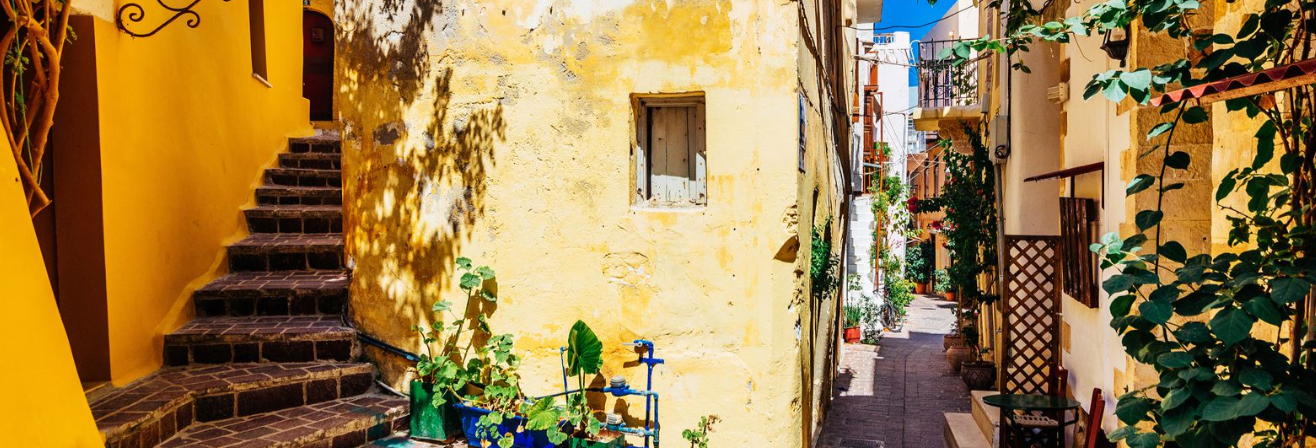Crete, the largest of the Greek islands, is renowned for its stunning landscapes, rich history, and vibrant culture. As an expat moving to Crete, embracing sustainable living not only helps protect the island’s natural beauty but also allows you to integrate more deeply into the local community. By adopting eco-friendly practices, you can contribute to the conservation of Crete’s environment and enjoy a healthier, more fulfilling lifestyle. Here are some practical tips and strategies for sustainable living in Crete.
Reducing Waste
1. Minimize Plastic Use: Plastic pollution is a significant environmental issue worldwide, and Crete is no exception. Reduce your plastic footprint by using reusable bags, bottles, and containers. Many local markets and shops encourage bringing your own bags, and you can find a variety of stylish, eco-friendly alternatives to plastic products.
2. Recycling: Recycling facilities are available in many parts of Crete, including major towns and cities. Separate your waste into recyclables, organic waste, and non-recyclables. Look for recycling bins marked with specific categories such as paper, plastic, glass, and metal. Familiarize yourself with the local recycling guidelines to ensure you’re sorting your waste correctly.
3. Composting: Organic waste can be composted to create nutrient-rich soil for your garden. Many households in Crete practice composting, which reduces waste and benefits the environment. If you have space, set up a compost bin or pile in your garden. Alternatively, community composting programs may be available in your area.
Sustainable Energy and Water Use
4. Solar Power: Crete enjoys abundant sunshine throughout the year, making it an ideal location for solar energy. Consider installing solar panels on your home to reduce your reliance on non-renewable energy sources. Solar water heaters are also popular and can significantly cut down on energy costs.
5. Energy Efficiency: Make your home more energy-efficient by using LED light bulbs, energy-saving appliances, and proper insulation. Simple habits like turning off lights and unplugging devices when not in use can also make a big difference.
6. Water Conservation: Water is a precious resource, especially on an island. Practice water conservation by fixing leaks, using water-saving fixtures, and collecting rainwater for gardening. Limit your water usage in daily activities such as showering, washing dishes, and watering plants.
Supporting Local and Organic Products
7. Buy Local: Support local farmers and producers by shopping at farmers’ markets and small local shops. Buying local not only reduces your carbon footprint but also supports the local economy. Fresh, seasonal produce is widely available in Crete, offering a healthier and more sustainable alternative to imported goods.
8. Organic Farming: Choose organic products whenever possible. Organic farming practices promote soil health, biodiversity, and reduce the use of harmful pesticides and fertilizers. Many local farmers in Crete adhere to organic principles, and their products are often labeled or available at specialized markets.
9. Grow Your Own: If you have the space, consider starting your own vegetable garden. Growing your own food reduces the need for transportation, packaging, and provides fresh, nutritious produce. Herbs, tomatoes, peppers, and cucumbers are some of the crops that thrive in Crete’s climate.
Sustainable Transportation
10. Public Transport and Biking: Reduce your carbon footprint by using public transport, biking, or walking instead of driving. Crete has a reliable bus network connecting major towns and cities. Biking is also a popular and eco-friendly way to explore the island, with many scenic routes available.
11. Carpooling and Car Sharing: If you need to drive, consider carpooling with friends or colleagues to reduce the number of vehicles on the road. Car-sharing services are also becoming more common, offering a convenient and sustainable transportation option.
Community Involvement and Education
12. Join Local Environmental Groups: Get involved in local environmental groups and initiatives. Many communities in Crete have organizations dedicated to conservation, clean-ups, and promoting sustainable practices. Volunteering with these groups can help you make a positive impact and connect with like-minded individuals.
13. Educate Yourself and Others: Stay informed about environmental issues and sustainable practices. Share your knowledge with friends, family, and the local community. Education is a powerful tool for promoting sustainability and encouraging others to adopt eco-friendly habits.
Conclusion
Living sustainably in Crete not only helps preserve the island’s natural beauty but also enhances your quality of life. By reducing waste, conserving energy and water, supporting local and organic products, using sustainable transportation, and engaging with the community, you can make a significant difference. Embracing these eco-friendly practices allows you to enjoy the best of what Crete has to offer while contributing to a healthier, more sustainable future for the island.


